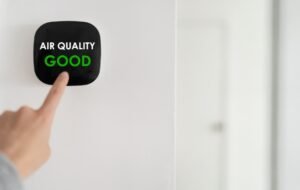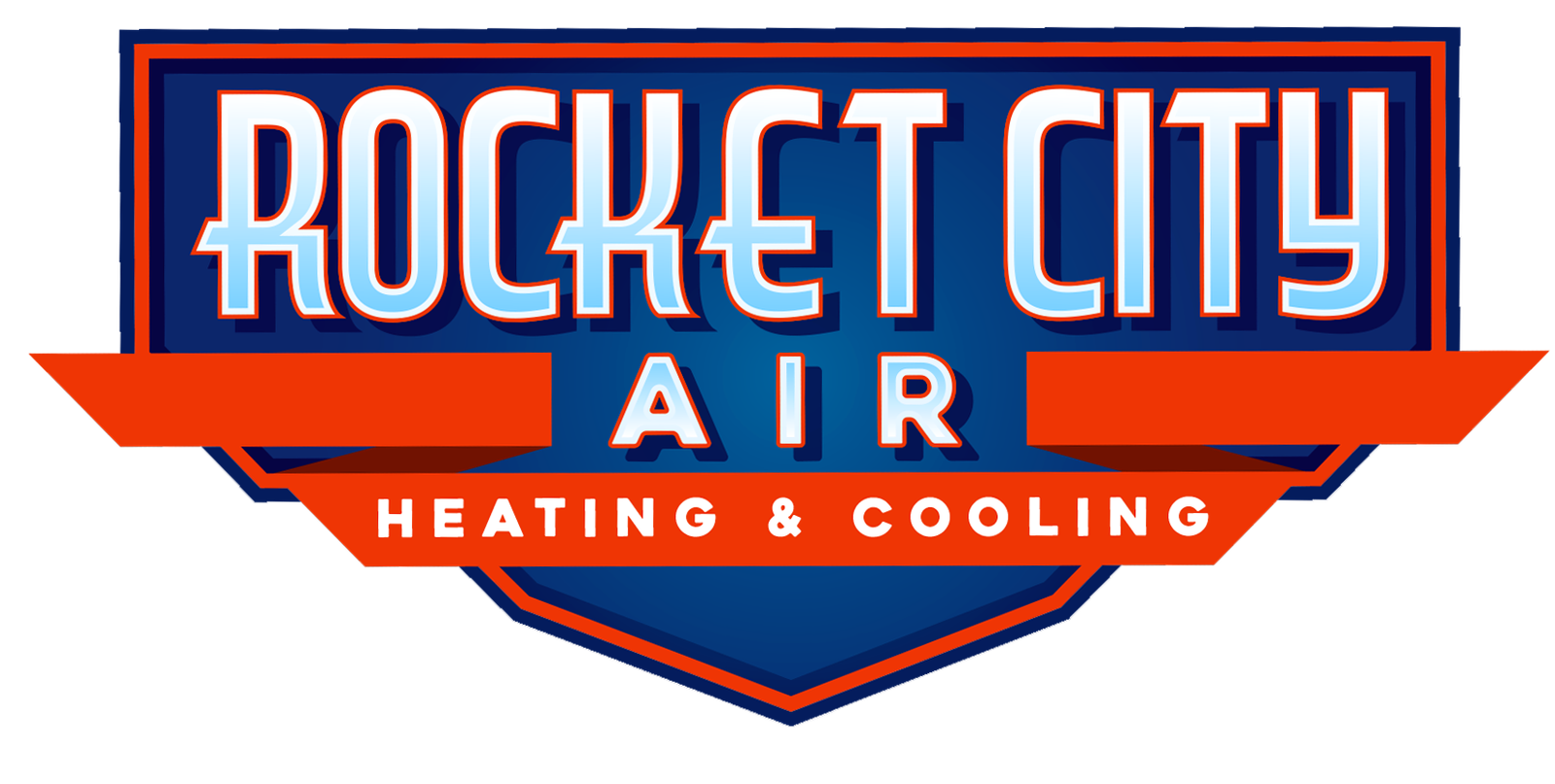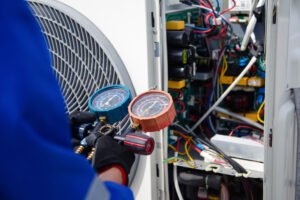 Indoor air quality is a serious concern for families living in New Hope and surrounding areas. The air inside your home can be up to five times more polluted than outdoor air. This happens because modern homes are built to be energy-efficient, which means they trap air inside. While this saves money on heating and cooling, it also keeps harmful particles and chemicals circulating through your living spaces.
Indoor air quality is a serious concern for families living in New Hope and surrounding areas. The air inside your home can be up to five times more polluted than outdoor air. This happens because modern homes are built to be energy-efficient, which means they trap air inside. While this saves money on heating and cooling, it also keeps harmful particles and chemicals circulating through your living spaces.
Your family spends most of their time indoors, especially during extreme weather. Children, elderly family members, and people with breathing problems are most at risk from poor air quality. The good news is that you can take steps to improve the air your family breathes every day.
Common Indoor Air Pollutants
Many things in your home can make the air unhealthy. Dust mites live in carpets, bedding, and furniture. They leave behind waste that can trigger allergies and asthma attacks. Pet dander from cats and dogs floats in the air long after your pets have left the room.
Cleaning products, air fresheners, and paint release chemicals called volatile organic compounds (VOCs). These invisible gases can cause headaches, dizziness, and breathing problems. Mold grows in damp areas like bathrooms and basements, releasing spores that can make people sick.
Cooking, candles, and fireplaces create particles that get trapped in your home’s air. Even new furniture and carpets can release chemicals for months after installation.
Health Effects on Children and Adults
Poor indoor air quality affects everyone differently. Children are especially vulnerable because their lungs are still developing. They breathe faster than adults, taking in more air and pollutants relative to their body size. This can lead to more frequent colds, ear infections, and asthma symptoms.
Adults may experience fatigue, headaches, and difficulty concentrating. People with allergies often have worse symptoms indoors than outdoors. Those with asthma may need to use their rescue inhalers more often.
Long-term exposure to poor air quality can contribute to serious health problems. These include respiratory infections, heart disease, and even some types of cancer. Pregnant women exposed to certain air pollutants face higher risks of complications.
Signs of Poor Indoor Air Quality
Your family may show signs that your home’s air quality needs attention. Frequent sneezing, coughing, or runny noses that seem to improve when you leave the house are warning signs. If family members feel tired or get headaches regularly at home, poor air quality might be the cause.
Look for physical signs in your home too. Dust that builds up quickly, musty odors, or visible mold growth all point to air quality problems. If your windows fog up often or you notice condensation on walls, your home may have too much moisture.
Pay attention to your HVAC system as well. Dirty air filters, dust around vents, or uneven heating and cooling can all affect air quality. Strange smells when your system runs or increased allergy symptoms when it’s operating are also red flags.
Solutions for Better Air Quality
You can improve your family’s indoor air quality with simple steps. Change your HVAC air filters regularly – at least every three months, or monthly during heavy-use seasons. Choose high-quality filters that can capture smaller particles.
Keep humidity levels between 30 and 50 percent. Use exhaust fans in bathrooms and kitchens to remove moisture. Fix any leaks promptly and clean up spills right away to prevent mold growth.
Vacuum carpets and rugs weekly with a vacuum that has a HEPA filter. Wash bedding in hot water weekly to kill dust mites. Consider using air purifiers in bedrooms and main living areas.
Be careful about what you bring into your home. Choose cleaning products with fewer chemicals. Let new furniture and carpets air out before bringing them inside. Avoid smoking indoors and limit the use of candles and air fresheners.
When to Seek Professional Help
Sometimes DIY solutions aren’t enough. If family members continue to have health problems despite your efforts, it’s time to call professionals. They can test your air quality and identify specific problems you might have missed.
Professional HVAC technicians can clean your ductwork, check for leaks, and recommend better filtration systems. They can also inspect your system to make sure it’s working properly to circulate and filter air throughout your home.
Consider professional help if you’ve had water damage, notice persistent odors, or see signs of mold. These problems often require specialized equipment and expertise to solve safely.
Get Expert Advice for Your Home’s Air Quality
If you’re concerned about your family’s indoor air quality or need help improving it, don’t hesitate to reach out for professional guidance. Rocket City Air understands the unique challenges that New Hope families face with indoor air quality. Our experienced team can assess your home’s air quality, recommend solutions, and help you create a healthier environment for your loved ones. Visit us at rocketcityair.net to learn more about how we can help protect your family’s health through better indoor air quality.





